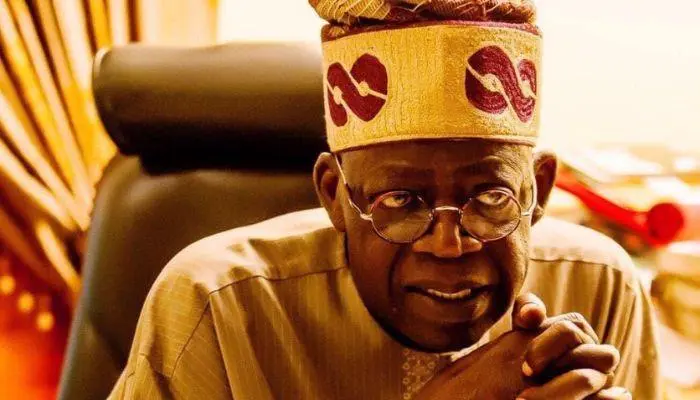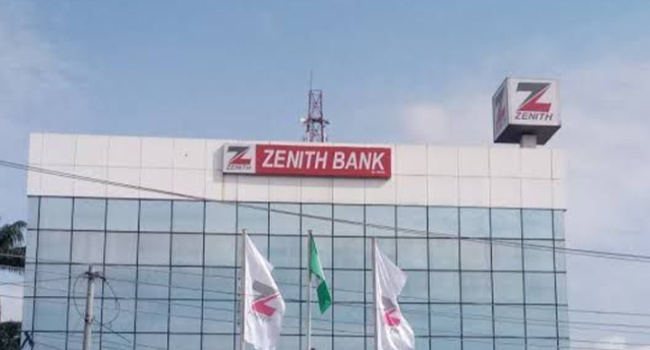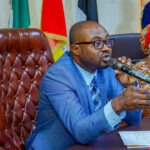Tinubu’s World Bank Borrowings Reach $6.45 Billion
President Bola Ahmed Tinubu’s administration has borrowed a total of $6.45 billion from the World Bank within 16 months, as revealed by a document on the global lender’s website.
This loan is part of a broader package that has seen Nigeria secure a total of $24.088 billion in loans over the past five years.
Join our WhatsApp ChannelThese loans are aimed at various development projects, but concerns are growing about Nigeria’s increasing reliance on international credit.
New Loans for Education, Health, and Power Projects
On September 26, the World Bank approved another $1.57 billion loan for Nigeria. This package aims to strengthen the country’s human capital by improving health services for women, children, and adolescents. Part of the funding will also address climate change challenges, particularly floods and droughts, by improving dam safety and irrigation.
A statement from the World Bank detailed the allocation of these funds. “We are providing $500 million to address governance issues affecting education and health delivery, $570 million to strengthen primary healthcare services, and $500 million for the Sustainable Power and Irrigation for Nigeria Project,” the statement read.
These funds are intended to help the Nigerian government deliver basic education and healthcare services more effectively, which are critical for improving the nation’s human capital.
Tinubu’s Approach to Climate Challenges
The Sustainable Power and Irrigation for Nigeria (SPIN) project is expected to protect Nigerians from the impacts of climate change by improving dam safety and water management. This project is designed to support irrigation over 40,000 hectares, benefiting around 950,000 people, including farmers and livestock breeders.
“The SPIN project will improve the management of water resources for both hydropower and irrigation in selected areas,” a World Bank official explained. “This initiative will help mitigate the effects of floods and droughts, which are becoming more frequent due to climate change.”
READ ALSO: SERAP Urges Tinubu To Investigate Alleged Mismanagement Of $1.5 Billion World Bank Loan
Criticism of Growing Debt From World bank
While the Tinubu administration emphasizes that these loans are necessary for development, critics argue that Nigeria’s rising debt poses long-term risks. The World Bank’s data shows that the institution has been extending large loans to Nigeria since 2020. The country received $6.36 billion in 2020 alone, covering projects like rural access improvements, agricultural marketing, and COVID-19 response initiatives.
In 2021, Nigeria took another $3.2 billion in loans for six projects, including efforts to improve livestock productivity. In 2022, the figure stood at $1.26 billion for six more projects, and in 2023, Nigeria borrowed an additional $2.7 billion for various programs, including power sector recovery and women’s empowerment.
As of 2024, Nigeria has already secured $3.82 billion from the World Bank for five new projects, including a $70 million grant. While these loans target critical areas such as health, education, and power, concerns over debt accumulation continue to mount.
Expert Opinions on Nigeria’s Loan Dependency
Financial analysts have raised alarms about Nigeria’s heavy borrowing, especially under Tinubu’s government. “Borrowing itself is not necessarily a bad thing if the funds are used effectively for projects that yield economic benefits,” said Dr. Chinedu Okafor, an economist. “But Nigeria needs to be cautious. We are already facing a debt burden that limits our ability to fund other critical areas of the economy.”
World Bank officials, however, maintain that their loans to Nigeria are aimed at addressing critical development issues. Ndiamé Diop, the World Bank country director for Nigeria, emphasized the importance of investing in human capital. “Effective investment in health and education today is central to increasing future employment opportunities and reducing poverty,” Diop said. “This new financing will address difficulties faced by Nigerians, especially women and girls, when it comes to accessing quality services.”
The Way Forward for Tinubu’s Administration
As Tinubu’s government continues to rely on international loans to fund development projects, the question remains whether these loans will deliver the long-term benefits Nigeria desperately needs. Tinubu’s focus on human capital and climate resilience is clear, but the mounting debt is a growing concern.
Moving forward, the administration will need to balance borrowing with careful fiscal management to ensure that the country doesn’t become overwhelmed by its debt obligations.
Emmanuel Ochayi is a journalist. He is a graduate of the University of Lagos, School of first choice and the nations pride. Emmanuel is keen on exploring writing angles in different areas, including Business, climate change, politics, Education, and others.
- Emmanuel Ochayihttps://www.primebusiness.africa/author/ochayi/
- Emmanuel Ochayihttps://www.primebusiness.africa/author/ochayi/
- Emmanuel Ochayihttps://www.primebusiness.africa/author/ochayi/
- Emmanuel Ochayihttps://www.primebusiness.africa/author/ochayi/


















Follow Us